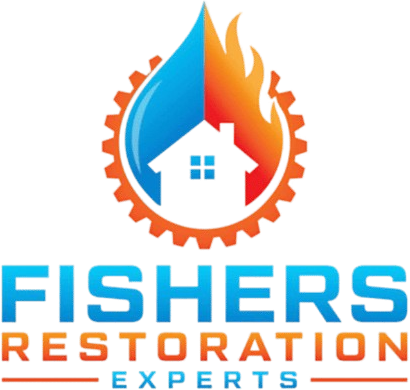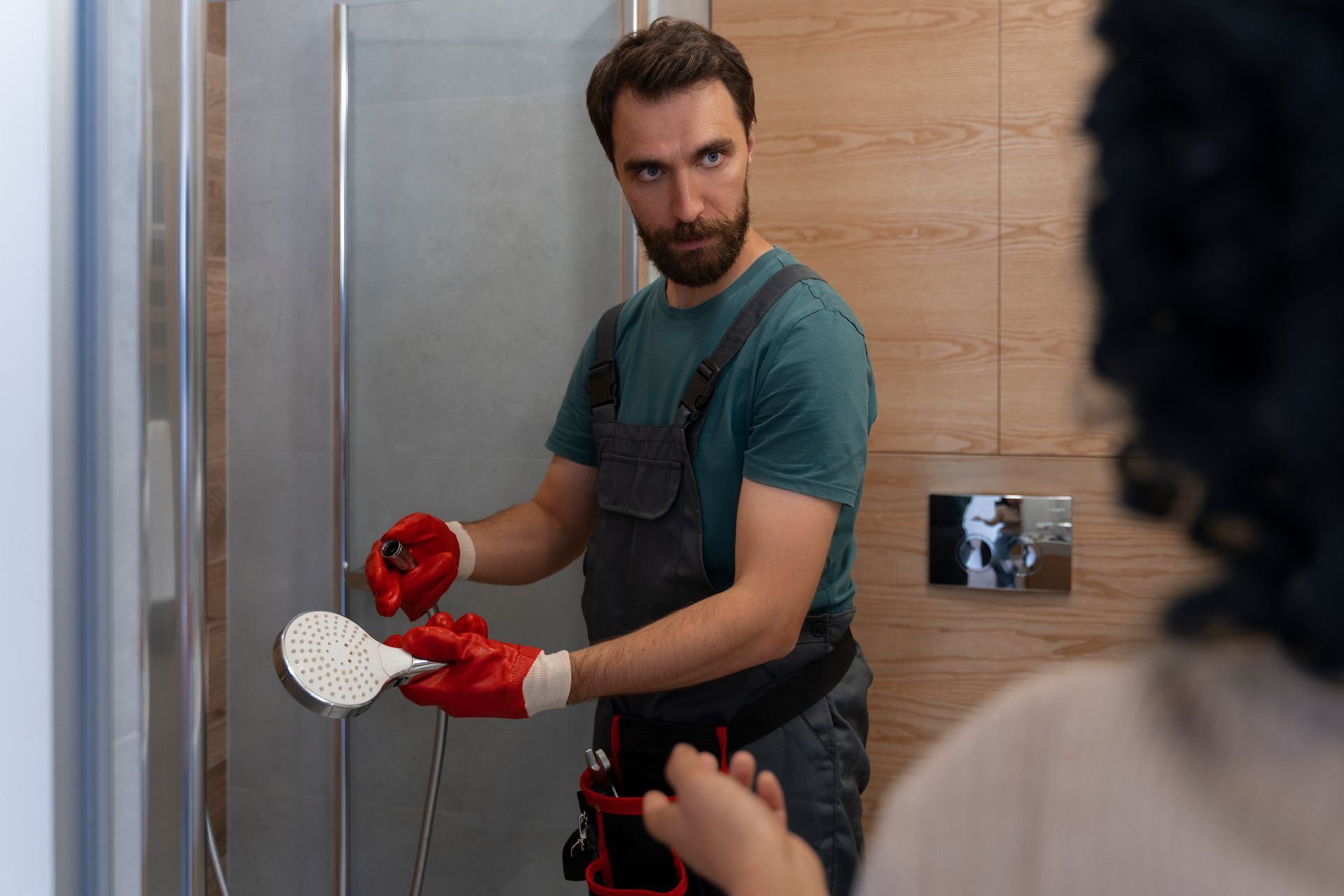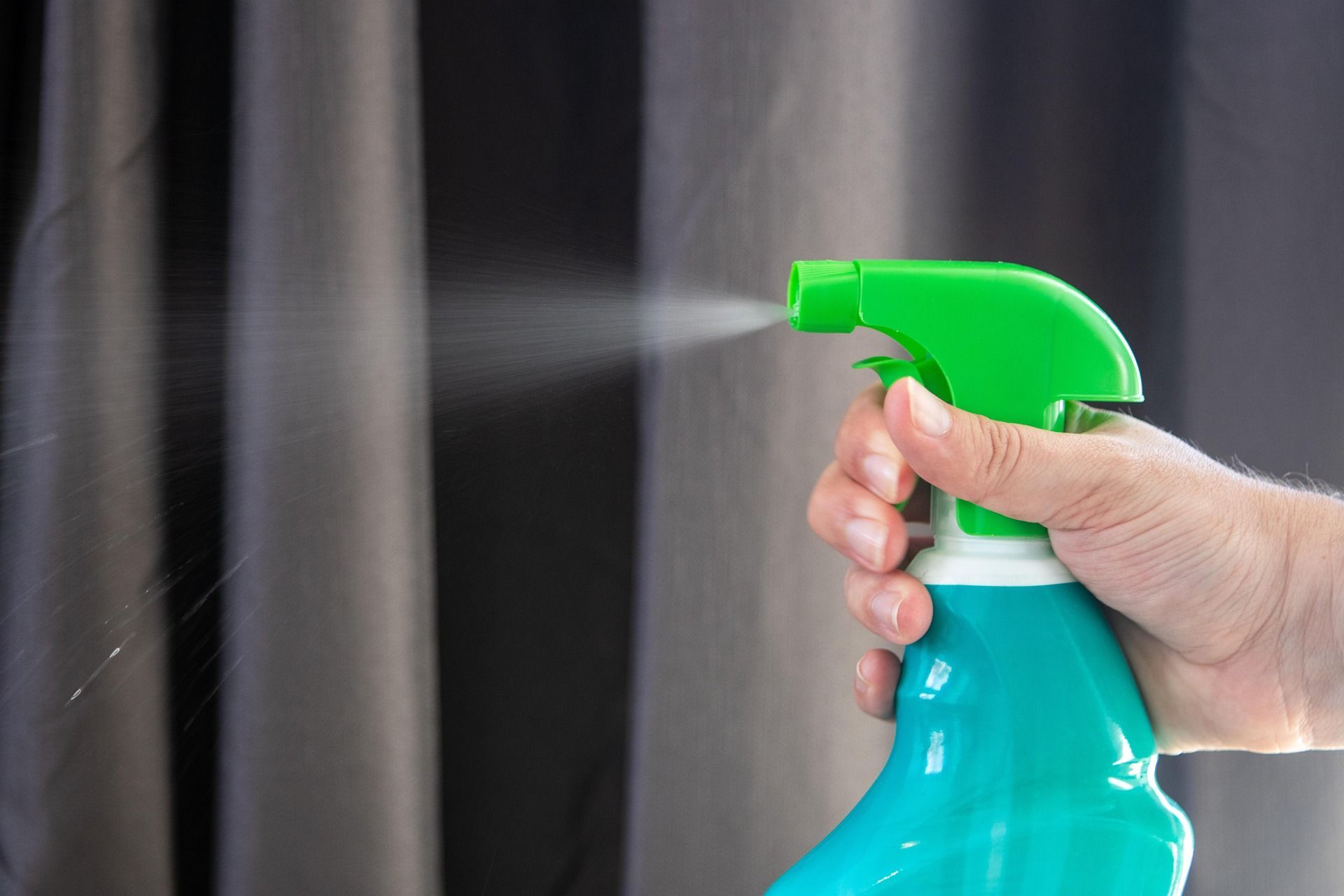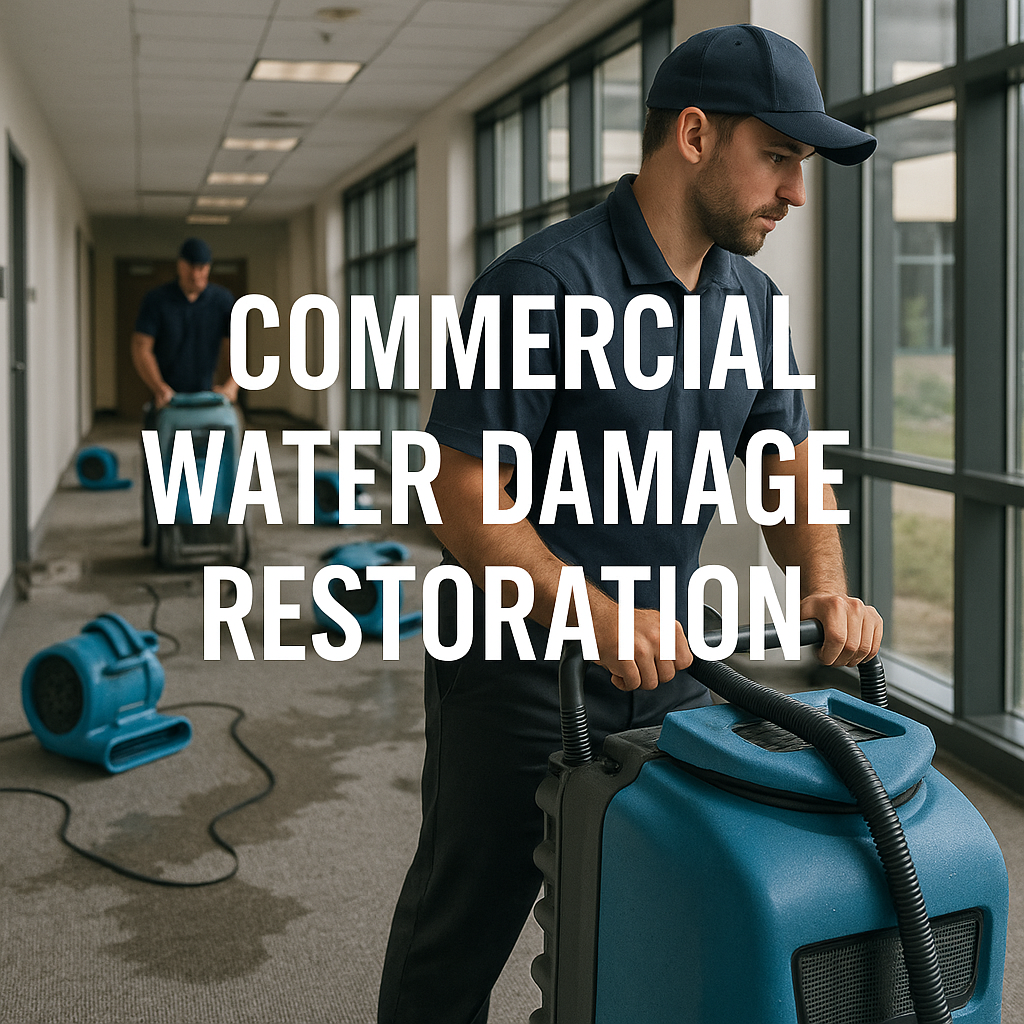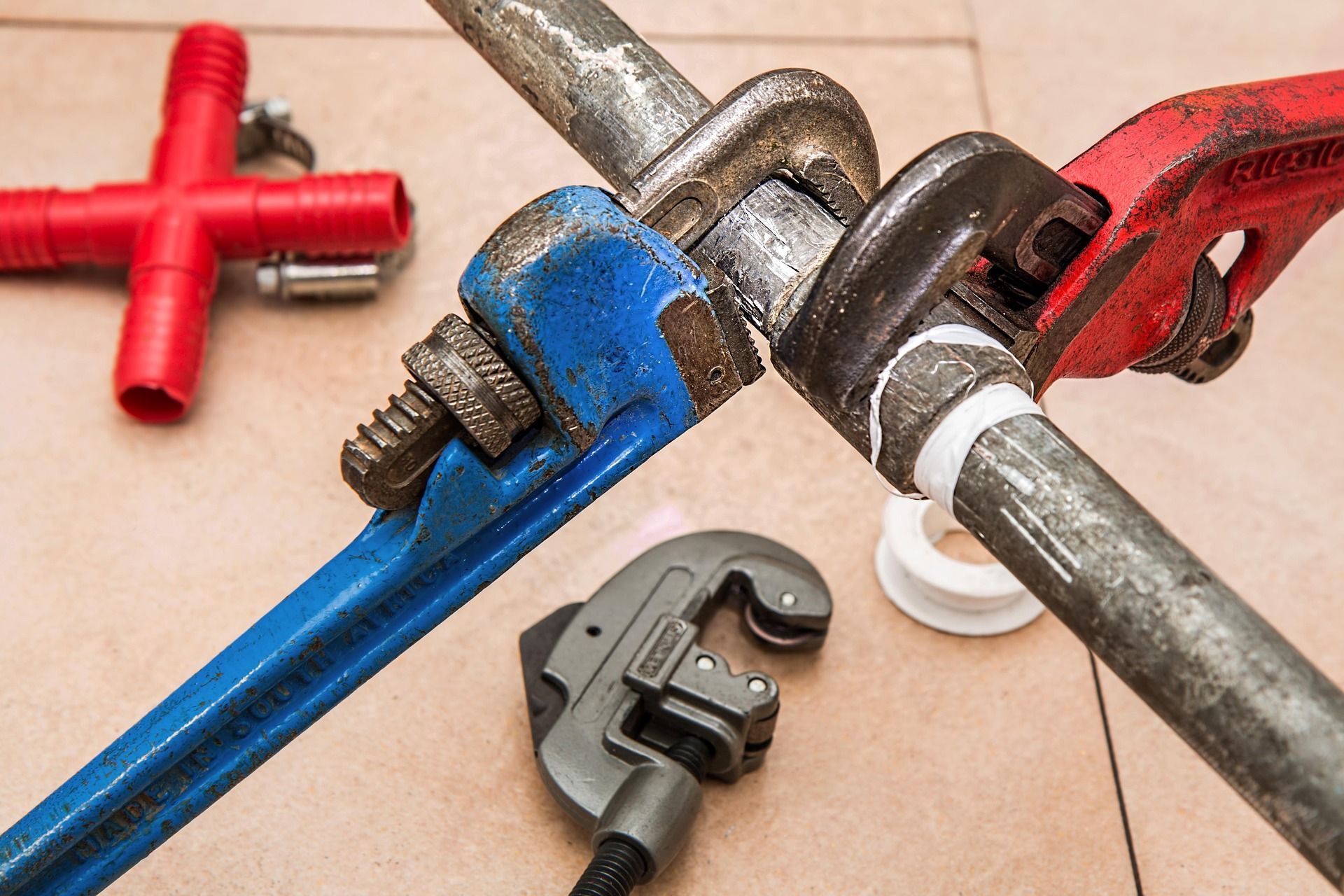May 19, 2025
Frozen Pipe: How to Prevent and Handle Burst Pipe Emergencies in Indianapolis
Winter in Indianapolis can be harsh, and one common plumbing nightmare that homeowners and businesses face is the dreaded frozen pipe. When water inside your pipes freezes, it expands — sometimes causing the pipe to crack or burst. The resulting damage can be devastating, leading to water damage, flooded basements, and costly restoration needs.
At Fishers Restoration Experts, we understand the urgency and complexity of burst pipe emergencies caused by freezing weather. Our expert team offers 24/7 emergency restoration services to help you recover quickly and safely. In this blog, we’ll explain what causes frozen pipes, how to prevent them, what to do if your pipe freezes or bursts, and why professional restoration is essential.
What Causes Pipes to Freeze and Burst?
Water freezes at 32°F (0°C), and when it does inside your pipes, it expands by approximately 9%. This expansion increases pressure inside the pipe, often causing it to crack or burst if the pressure becomes too great.
Here are the most common causes of frozen pipes in Indianapolis homes and businesses:
Cold Weather and Freezing Temperatures: Prolonged exposure to below-freezing temperatures, especially during harsh winters, puts pipes at risk.
Poor Pipe Insulation: Pipes located in unheated or poorly insulated spaces such as basements, crawl spaces, attics, garages, or exterior walls are vulnerable.
Lack of Water Flow: Pipes that have little or no water movement freeze faster because stagnant water cools quickly.
Drafts and Air Leaks: Cracks or gaps near plumbing lines let in cold air that chills the pipes.
Outdoor Exposure: Outdoor pipes or faucets not properly winterized freeze more easily.
Why Frozen Pipes Are Dangerous
While a frozen pipe may initially only stop water flow, the real danger lies in the pipe bursting. Here’s why frozen pipes pose a serious threat:
1. Burst Pipe and Extensive Water Damage
When a pipe bursts, it releases a large volume of water that can flood your basement, walls, floors, and personal belongings. The water damage caused by a burst pipe can affect structural elements of your home and cause costly repairs.
2. Flooded Basement Risk
Basements are especially prone to flooding from burst pipes due to their location and proximity to plumbing systems. A flooded basement can damage foundations, insulation, HVAC systems, and more.
3. Mold Growth
Water left standing or absorbed into building materials creates ideal conditions for mold to grow, often within 24-48 hours. Mold not only damages your property but also poses health risks.
4. Disruption and Expense
Dealing with the aftermath of a burst pipe involves emergency plumbing repairs, water extraction, mold remediation, and restoration, which can be expensive and disruptive.
Signs Your Pipes May Be Frozen
Knowing the signs of frozen pipes can help you act early and prevent a burst:
#No water flow or reduced water flow from faucets#Unusual noises like banging or gurgling in pipes#Visible frost or ice on exposed pipes#Water leaking from pipe cracks or joints#Sudden drop in water pressure
If you notice any of these, inspect your pipes immediately and take preventive or corrective action.
How to Prevent Frozen Pipes
Preventing pipes from freezing is much easier and less costly than dealing with burst pipes and water damage. Here are some essential tips:
1. Insulate Pipes
Install foam pipe insulation or heat tape around pipes in unheated or vulnerable areas such as basements, crawl spaces, garages, attics, and exterior walls.
2. Seal Drafts and Cracks
Check for drafts near plumbing lines, foundation walls, and windows, and seal any gaps with caulk or weather stripping to keep cold air out.
3. Keep Your Home Warm
Maintain your thermostat at or above 55°F (13°C) even when you’re away. Heat helps prevent freezing.
4. Allow Faucets to Drip
Letting faucets drip slightly keeps water moving, reducing the risk of freezing and relieving pressure buildup if pipes start to freeze.
5. Open Cabinet Doors
Open kitchen and bathroom cabinet doors to allow warm air to circulate around pipes under sinks.
6. Disconnect Outdoor Hoses and Shut Off Exterior Valves
Drain outdoor hoses and close indoor valves supplying exterior spigots to prevent freezing.
What to Do If You Suspect a Frozen Pipe
If you suspect a pipe has frozen, take the following steps immediately:
1. Locate the Frozen Section
Check all faucets and visible pipes to determine where the freeze may be occurring.
2. Turn Off the Water Supply
If the pipe has burst or you fear it may burst, turn off the main water supply to prevent flooding.
3. Thaw the Frozen Pipe Carefully
Use a hairdryer, heat lamp, or warm towels to slowly thaw the pipe. Never use open flames or excessive heat.
4. Monitor for Leaks
After thawing, inspect pipes closely for cracks or leaks.
5. Call a Professional Plumber
If you cannot locate the freeze or if the pipe has burst, call a licensed plumber immediately.
What to Do After a Burst Pipe
A burst pipe caused by freezing water is a plumbing emergency requiring quick action:
-Shut off the main water valve to stop water flow.-Turn off electricity in affected areas to prevent electrical hazards.-Call Fishers Restoration Experts for fast water damage restoration and mold prevention.-Remove valuable items from flooded areas if it is safe to do so.-Avoid contact with contaminated water, especially if toilet overflow or sewage is involved.
How Fishers Restoration Experts Can Help
At Fishers Restoration Experts, we provide full-service water damage restoration for burst pipes, frozen pipes, and flooded basements. Our experienced team responds 24/7 throughout Indianapolis, Fishers, Carmel, Noblesville, Westfield, Geist, Lawrence, and McCordsville.
Our Restoration Process Includes:
-Emergency Water Extraction: Using commercial-grade pumps and vacuums to remove standing water quickly.-Structural Drying: Utilizing industrial air movers and dehumidifiers to dry walls, floors, and ceilings.-Mold Inspection and Remediation: Identifying and safely removing mold growth caused by water damage.-Contents Cleaning and Restoration: Restoring furniture, electronics, documents, and other valuable belongings.-Repairs and Reconstruction: Fixing drywall, flooring, and structural damage to return your property to its original condition.-Insurance Claims Assistance: Helping you document damage and communicate with your insurer.
Frequently Asked Questions
Q: How long does it take to dry a home after a burst pipe?
A: Drying time varies but generally takes 3-7 days depending on the extent of water damage and drying conditions.
Q: Can I thaw a frozen pipe myself?
A: Yes, if accessible and safe, but avoid using open flames and call professionals if you are unsure or if the pipe has burst.
Q: Will homeowner’s insurance cover damage from frozen pipes?
A: Most policies cover sudden burst pipes but not damage caused by negligence or lack of maintenance. Always check with your insurer.
Q: How can I reduce the risk of frozen pipes in my home?
A: Insulate pipes, seal drafts, keep your home heated, and let faucets drip during cold weather.
Frozen pipes are a significant winter hazard that can cause extensive water damage if left unchecked. By understanding how to prevent freezing, recognizing warning signs early, and knowing what to do if a pipe freezes or bursts, you can protect your home or business from costly repairs.
When a frozen pipe bursts, immediate response is critical. Fishers Restoration Experts offers expert water damage restoration, mold remediation, and full property restoration services to help you recover quickly and safely.
For reliable emergency help or to learn more about our services, contact Fishers Restoration Experts today at 317-951-9067 or visit www.fishersrestorationexperts.com.
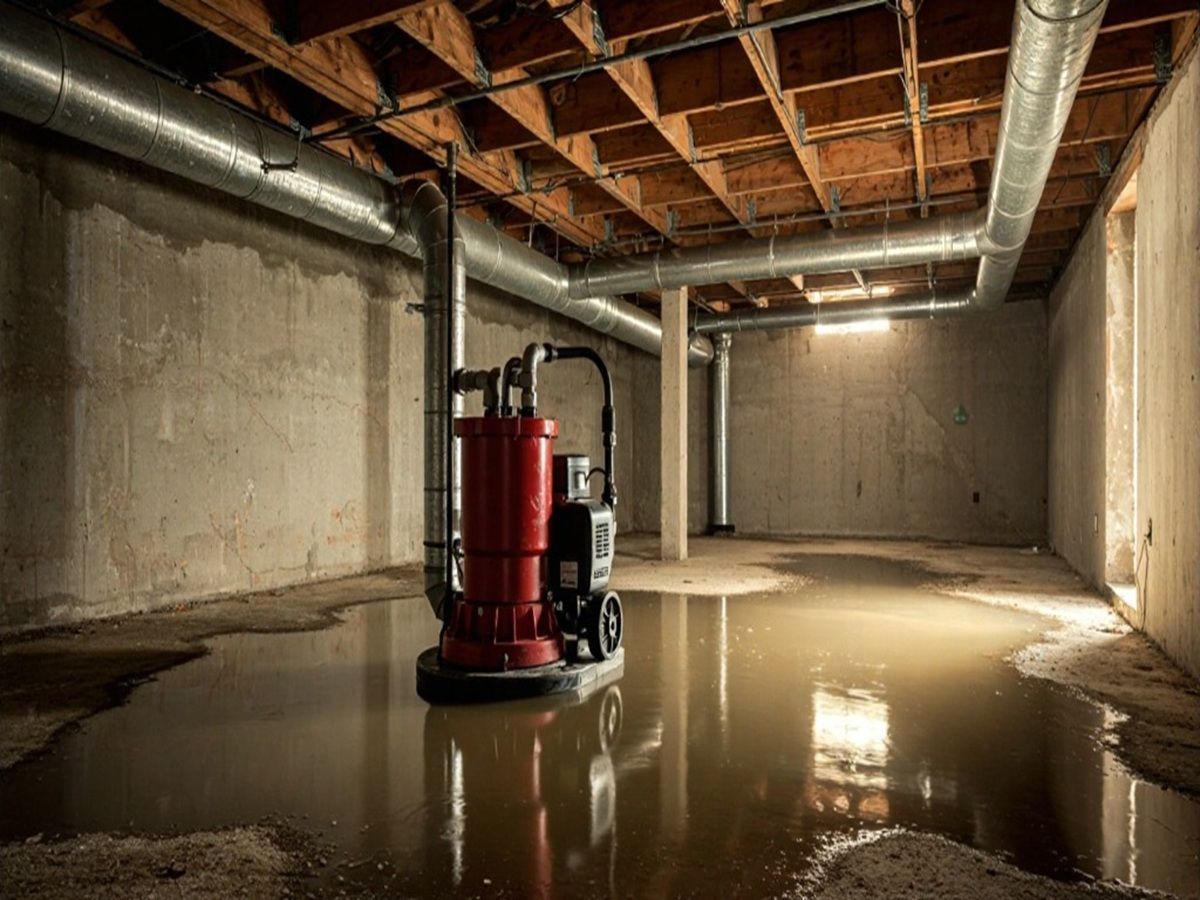
Basement flood restoration with Fishers Restoration Experts in Indianapolis becomes very real once fall storms start. Rain soaks the ground and cold air moves in right behind it. Pipes feel that change, sump pumps work harder and small issues in the basement turn into water on the floor. Many homes around Indianapolis rely on finished or partially finished basements. These spaces hold stored items, mechanical systems and often a family room. When water gets in, it touches a lot of things at once. A clear plan helps you protect the space and recover faster when problems appear. This guide walks through how basement flood restoration works, what you can do before winter and when it makes sense to call a local team. Basement Flood Restoration And Basement Flood Restoration Services In Indianapolis Basement flood restoration in Indianapolis always starts with a clear look at what happened. A good crew checks where the water came from, how far it spread and what it touched. Fishers Restoration Experts treats that first visit as the base for every step that follows. Basement flood restoration services usually follow a repeatable pattern. That pattern keeps the work organized and keeps time on your side. The team begins with safety. They look for obvious electrical risks and other hazards. You stay out of standing water near outlets or power strips or electrical panels. They may ask you to shut power to the basement from an upstairs panel. Next comes inspection. Experienced technicians walk the entire basement and mark every wet area. Moisture meters help them find damp drywall or framing that still looks dry on the surface. That detail matters because trapped moisture often causes trouble later. After that, crews focus on water removal. They bring in pumps and extraction tools and start pulling water out of the basement. They work on the deepest spots first and then move to carpets and other soft materials. Drying follows right away. Fans move air across wet surfaces. Dehumidifiers pull water from the air so the structure dries from the inside. Technicians check readings and adjust equipment so the basement reaches normal moisture levels, not just “good enough.” Cleaning and sanitation come next. The crew wipes and washes hard surfaces and removes items that took too much water. They apply cleaning agents in areas that saw dirty water or a long wet period. You get a basement that feels safe to walk through again. The last part of basement flood restoration services covers repairs. That may include drywall, trim, paint and flooring. Fishers Restoration Experts handles both the emergency phase and the rebuilding phase, so you work with one team from start to finish. Basement Flooding Restoration And Flooded Basement Restoration After Heavy Rain Basement flooding restoration and flooded basement restoration often start with the sky. Heavy fall rain hits roofs, driveways and yards. Water then looks for the lowest place to go. If gutters stay clogged, water spills over the sides. That water lands right next to the foundation and runs down the wall. Short downspouts drop roof water near the house as well. Over time, soil beside the wall becomes soft and holds more moisture. Grading also plays a part. If the ground slopes toward the house, water flows toward the basement instead of away from it. During a long storm, that water pools along the wall and pushes against small cracks. Sump pump problems often join the list. A stuck float or a failed pump leaves the pit full of water. Once the water level rises above the drain tile, it seeks another path. Many homeowners see that path appear as water at the cove joint or in floor cracks. In these moments, basement flooding restoration focuses on both short term and long term steps. Short term work pulls water out and dries the basement. Long term work looks at the reasons water found a way inside. You can help by giving water a better route. Clean gutters in fall and spring. Add downspout extensions so water lands several feet from the foundation. Fix low spots that hold water along the wall. Test the sump pump a few times each year with a bucket of water. These simple habits reduce the odds of a flooded basement. They also support the work that a restoration crew does after a storm. Basement Flood Damage Cleanup And Basement Water Damage Restoration Steps Basement flood damage cleanup begins when you first see water in the space. You may notice wet carpet, a musty smell or visible puddles. Quick action limits damage and makes basement water damage restoration more direct. The first step is to protect people in the home. Keep children and pets away from the flooded area. Avoid walking through water that touches outlets, power strips or electrical panels. If you can reach the main breaker upstairs, shut power to the basement until a professional checks the area. Next, call a company that handles basement flood damage cleanup on a regular basis. Fishers Restoration Experts builds its schedule around water and fire losses, so a flooded basement fits that daily work. A fast call often leads to a faster on site visit. While you wait, you can start simple tasks if the area feels safe. Move small dry items from the floor to a higher spot. Place foil or blocks under furniture legs to keep them off damp floors. Take photos of the damage before you move large items. Once the crew arrives, basement water damage restoration follows a clear sequence. The technicians remove standing water and then extract as much as they can from carpets and pads. They set up dryers and dehumidifiers and return often to check progress. You also see a focus on contents. Some items dry well with careful handling. Others, such as soaked cardboard boxes, may not recover. The team explains these choices and helps you decide which items stay and which items leave. When the structure reaches normal moisture levels, repairs begin. You work with the crew to decide on finishes, colors and materials. That way the basement feels like your space again, not just a dried work site. Emergency Flood Damage Restoration And Flood Damage Restoration In Winter Emergency flood damage restoration often starts with a pipe instead of a storm. When temperatures drop, water in exposed pipes may freeze. Ice expands and creates pressure. Thin spots in copper or older plastic lines split under that stress. A burst pipe above the basement creates a fast moving problem. Water runs along joists and through light fixtures. It drips behind walls and onto stored belongings. You may hear the sound of water or notice it around a floor drain. In this type of situation, flood damage restoration needs quick action. You first shut off the main water supply. The valve often sits near the water meter or where the main line enters the house. Once the flow stops, the crew can focus on removal and drying. Emergency flood damage restoration in winter blends several steps. Teams pump out standing water, extract moisture from floors and open up areas that trap water. They also watch for hidden damp spots near the broken pipe. You can reduce this risk with a few habits. Add pipe insulation in unheated spaces. Seal gaps that let cold air reach indoor plumbing. Keep a steady indoor temperature, even when you travel. Know where the main shutoff valve sits and teach other adults in the home. Not every water issue calls for emergency response. Some situations fall into planned flood damage restoration instead. Slow seepage, old stains and long term dampness need careful drying and repair, but not a midnight call. A good contractor can help you tell the difference. FAQ: Basement Flood Restoration In Indianapolis How fast should I call after I see a flooded basement? Call a restoration company as soon as you see water. Drying often works best when it starts within one or two days of the event. Fast action reduces the chance of mold and long term damage. Do I always need professional basement flood restoration? Small spills from a short leak may dry with simple tools. Larger floods, soaked walls or any sign of contamination call for professional help. A local team brings stronger equipment and deeper experience. What can I do now to prepare my basement for heavy fall rain? You can clean gutters, extend downspouts and improve grading. These steps keep water away from the foundation. You can also test the sump pump and add a backup power source. Simple work now may prevent big problems later. How does basement water damage restoration handle mold? Restoration crews look for visible growth and for areas that stayed damp for several days. They remove damaged materials when needed and clean surfaces that can remain. Drying and dehumidification also make the space less friendly to mold. Will flood damage restoration always return my basement to normal? Results depend on how long the water stayed and what it touched. Many basements recover fully with proper work. A good contractor explains limits and options before repairs start. Call Fishers Restoration Experts For Basement Flood Restoration Basement flood restoration in Indianapolis feels easier when you already know whom to call. Fishers Restoration Experts focuses on flooded basement restoration and related services for homes across the area. The team knows local weather patterns, common basement designs and typical plumbing layouts. You gain more control when you pair prevention with a ready contact. You handle gutter care, grading and sump pump tests. Fishers Restoration Experts handles basement flood restoration services, basement flooding restoration, basement flood damage cleanup and basement water damage restoration when problems appear. For fast help with emergency flood damage restoration or any flood damage restoration need, call Fishers Restoration Experts today at 317-951-9067 .
